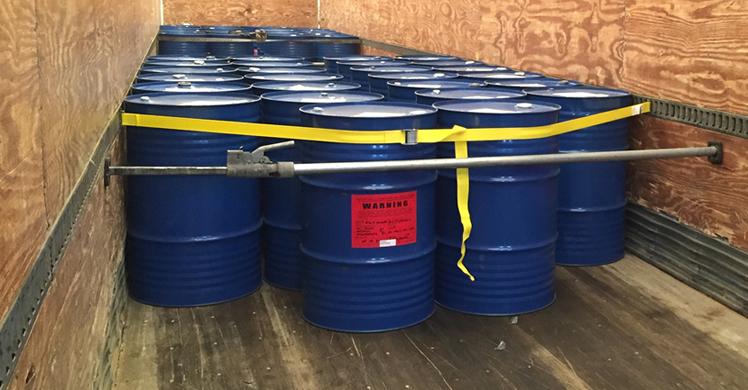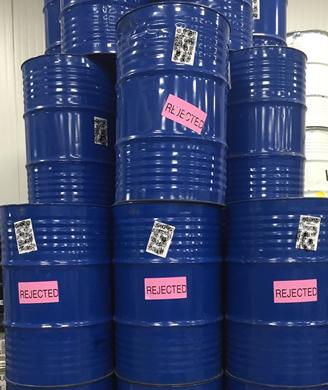(Department of Homeland Security News Release)

CHICAGO — Special agents with U.S. Immigration and Customs Enforcement’s (ICE) Homeland Security Investigations (HSI) have seized nearly 60 tons of illegally imported Chinese honey valued at more than $200,000 destined for U.S. consumers.
The three shipping container loads (195 barrels) of bulk honey smuggled into the United States were falsely declared as originating from Vietnam to evade anti-dumping duties applicable to Chinese-origin honey.
HSI Chicago was notified in March of the suspect honey by a domestic honey packer located in the Midwest after laboratory reports provided to the honey packer appeared fraudulently altered. HSI sent honey samples to the U.S. Customs and Border Protection (CBP) laboratory in Savannah, Georgia, for analysis. CBP determined that the honey had a greater than 99 percent probability match with Chinese-origin honey.

HSI seized the illicit honey April 28. The domestic honey packer who proactively notified HSI of the suspect honey and the private laboratory whose reports were fraudulently altered are fully cooperating, and are not targets in this investigation. The investigation continues to determine where in the supply chain the private laboratory reports were altered for the honey.
HSI has stepped up its efforts regarding commercial fraud investigations that focus on U.S. economic, and health and safety interests. These anti-dumping criminal schemes create a divergent market that negatively affects legitimate businesses.
“Ensuring a safe food supply is a crucial component of border security,” said James M. Gibbons, acting special agent in charge of HSI Chicago. “HSI and our law enforcement partners are committed to protecting the domestic honey market and U.S. consumers by aggressively investigating deceptive and illicit import schemes.”
With the recent enactment of the Trade Facilitation and Trade Enforcement Act of 2015 (TFTEA), Congress recognized that industries and companies that circumvent U.S. law and regulation remain a risk to this nation’s economic security. Among its provisions, TFTEA requires ICE and CBP to collaborate to enhance trade enforcement, with specific emphasis on honey illegally imported into the United States in violation of U.S. customs and trade laws.
In December 2001, the U.S. Commerce Department imposed anti-dumping duties after determining that Chinese-origin honey was being sold in the United States at less than fair-market value. The duties first imposed were as high as 221 percent of the declared value. Later these duties were assessed against the entered net weight, currently at $2.63 per net kilogram, in addition to a “honey assessment fee” of 1.5¢ per pound on all honey.
In 2008, federal authorities in Chicago began investigating allegations of organizations circumventing anti-dumping duties through illegal imports, including transshipment and mislabeling, on the “supply side” of the honey industry. The second phase of the investigation involved the illegal buying, processing and trading of honey that illegally entered the U.S. on the “demand side” of the industry. In these multi-year investigations, HSI Chicago and the Department of Justice together convicted nine individuals (not including 10 remaining foreign fugitives) in a series of global schemes which evaded nearly $260 million in anti-dumping duties on honey from China and which also involved honey containing antibiotics prohibited in food.